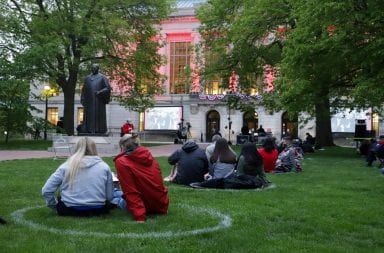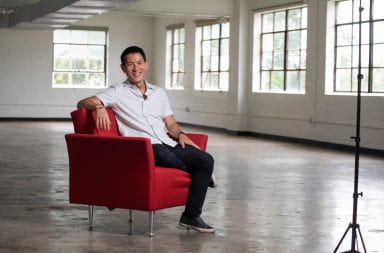
The Student Wellness Center’s Beyond Your Own Buzz program is set to start Thursday to provide students support for improving their relationship with drugs and alcohol without ending it. Credit: Bella Czajkowski | Patricia B. Miller Special Projects Reporter
The Student Wellness Center is working to support students struggling with substance abuse with its Beyond Your Own Buzz program.
The Student Wellness Center created Beyond Your Own Buzz for students who want to improve their negative relationship with alcohol or drugs but do not necessarily want to become sober or abstain from substance use. Starting Thursday, students can access the virtual meetings every Thursday from 5:30-6:30 p.m. on the Student Wellness Center’s website.
“The end goal in general for all students that participate in this group is just that they feel confident in their decisions surrounding their alcohol and drugs use,” Geena Crosby, wellness coordinator for alcohol and other drug prevention at the Student Wellness Center, said.
Mackenzie Hogan, wellness coordinator for the collegiate recovery community at the Student Wellness Center, said it’s not about forcing students to abstain from drugs and alcohol, nor is it meant to replace professional counseling. Students are able to define for themselves what their own goals are in a supportive, non-judgmental community, and the program emphasizes harm reduction and moderation.
“We’re really good at supporting students in recovery, and we’re really good with our programs around education,” Hogan said. “But there just felt like there was a gap between those two programs that we wanted to fill.”
Hogan said the normalization of drinking and drug use on campuses leads to possible student expectations that such practices are necessary to enjoy college life.
A pair of university mental health surveys found that one in five students were drinking more alcohol to cope with increased depression and anxiety from the pandemic.
Hogan said those between 18-24 years old are at the highest risk for substance use disorders but there may be a stigma around seeking help when relationships with substance use become negative and harmful for the student, preventing them from receiving the support they need.
“Anything we can do to help make sure students aren’t having negative consequences because of their use, that’s what we’re aiming for, trying to support them before they get to the space where truly they can’t function the way they want to,” Hogan said.
For those seeking help from Beyond Your Own Buzz, students can attend as often or as little as they wish instead of being required to go to weekly meetings, Crosby said.
“Some students may only need to drop in for a couple groups, learn some things, maybe that’s enough for them,” Crosby said. “Some students may need to be part of this group for longer, and they may want to be part of this group for longer.”
Groups will meet once a week on Zoom to focus on one of the Nine Dimensions of Wellness established by the Student Wellness Center, such as reflecting on how they can have healthy and positive relationships in their lives that don’t rely on substance use for socialization, Crosby said.
Students are also able to suggest what they would like to focus on in their weekly meetings so they have some control over what goes on in meetings, Crosby said.
Individual coaching meetings are also available for students seeking help in addition to Beyond Your Buzz, giving extra support to students struggling to reach their goals, Hogan said.
Hogan said she hopes students find a community that cares for them and a place that supports and educates them to make healthier choices in Beyond Your Buzz.
“There’s a really powerful thing that happens when you get a group of people together who may have different goals,” Hogan said. “Creating a space where despite individual goals, people are supporting each other, and they are going to do what they can to help make sure the other people are reaching their goals.”


